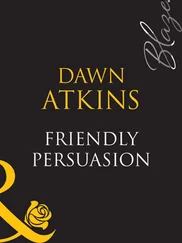"She knew what had happened?"
"Of course."
"And you got from her the sympathy you wanted?"
"No. On the contrary. It was the student who was the toughest of them all. She began with a rebuke based on the history she had learned at an Israeli college. Why is it you Jews can penetrate all sorts of foreign places and settle into other people's souls? Why is it so easy for you to wander from place to place without forming bonds of friendship with any other people, even if you live among them for a thousand years? Because you have a special god who is yours alone, and even when you don't believe in him, you are certain that because of him you have the right to be everywhere. In that case, who will love you? Who will want you? How will you survive?"
"This is all familiar stuff."
"Yes, but there on the roof in Tulkarm, through the bottomless bitterness of this pregnant young woman, it took on a new coloration. Maybe because she was soon to give birth, maybe because her husband wouldn't be there at the delivery, maybe because of her studies that had been cut short, she felt she had nothing to lose with me, that I was laid bare before her, a stubborn old Jew. What are you doing here again, she asked, what can a man be looking for at night among his enemies? Why are you bothering and frightening my father? What do you want from me? That I'll offer you compassion for your soldier? Why should I feel sorry for a soldier who invades a space that does not belong to him and doesn't care about us, who we are and what we are? Who takes over a family's roof in order to kill one of us, and thinks that if he does us a favor and leaves us a clean bucket, washing away the evidence of his fear, we'll forgive him for the insult and humiliation? But how can we forgive? Can we be bought with a clean bucket?"
"That's how she explained it to you? As an added insult? That's crazy."
"No, Daniela, don't make life easy for yourself. She's not crazy. She's strange, but not crazy. Idiosyncratic, but not crazy. She spoke with clarity and logic. We are sick and tired of you, she said. You took land, you took water, and you control our every move, so at least give us a chance to join you. Otherwise we'll all commit suicide together. But you, for all of your ability to bore your way into other people, you are closed up within yourselves, not blending in or letting others blend with you. So what's left for us? Only to hate you and pray for the moment that you will move away from here, because this will never be a homeland for you if you don't know how to blend into everything that's in it. So go on, she says, pick up your walking stick again and get out of here. Even the baby in my belly is waiting for it."
"What was her name?"
"She wouldn't tell me."
"You quote her as if she actually convinced you."
"She didn't convince me, but she impressed me. With her female confidence. And the pregnancy saddened me greatly. Because if Eyali were alive, I could have a daughter-in-law like that, who would give birth to a child who speaks sweet Hebrew."
"Again with the sweet lovely Hebrew? In what way sweet?"
"When Arabs speak proper Hebrew, without mistakes, even more flowery than normal, there's often a sweetness to it. The accent becomes softer, and because they are self-conscious about pronouncing p, afraid it'll come out as b, they stress it more, with a sort of anxious musicality. The verb in their sentences comes at the beginning, and the shift in word order creates a dramatic difference. And there's also a singsong phrasing that turns a statement into a question, so that instead of saying, It hurts me, she'll say, And how can I not be hurt? And instead of saying, I hate you, she says, How can people not hate you? Something like that."
"And this is sweetness?"
"To me it is."
11.
AT MIDDAY IN an ambulance descending from the mountains to the coastal plain sits the elevator apparatus in its entirety, one of a kind, in back with the four Filipinos, who keep their distance from it. Old Ya'ari is there, too, sitting in the wheelchair, feeling satisfied that the disassembly was achieved without mishap, thinking over the next step: how to convince Gottlieb to make a new piston that will fit the fork lift.
He is still ashamed of his tearful outburst on his friend's doorstep, but he is also grateful to her for wisely recasting his weakness as a strength. In any event, it was good that he resisted her offer of lunch. Who knows, he might have cried again over the cake.
Ya'ari and the expert are crowded up front with Maurice, listening to the ambulance driver reminisce about his last trips with Ya'ari's mother. When I see your father alive and kicking in his wheelchair, I miss her. She was a real lady, and when she died she was your age, Amotz, but had no complaints or bitterness.
Ya'ari confirms that diagnosis and distills the purpose of life into one short sentence: Do everything possible to leave this world without complaints or bitterness. But his own final test has not yet arrived, and for now he has nothing to do but wonder why it's already afternoon and no one has called from his office asking a question, requesting advice, or reporting a complaint — as if his business can actually go on without him. Maybe there's another children's play today? he wonders and phones his secretary, who assures him that all his employees have come in, despite it being the tail end of the holiday, and are working diligently, and that no problem has arisen among them requiring the boss's wisdom and experience. However, there is a stranger who has been sitting in his office for several hours and insists on waiting for him.
"A stranger?" Ya'ari is baffled. "In my office?"
Yes, the tenant from the Pinsker Tower, who showed up with legal papers and is determined to serve them on Ya'ari by hand, personally.
"But why did you let him in my office? Why can't he wait outside?"
"Amotz," protests the secretary, "he's a bereaved father, his son was killed a few months ago; he told me the whole story. It's very crowded in the office with all the computers and drafting tables, and outside the weather is bad, rainy and very windy. But don't worry, he's sitting in the corner and not touching anything."
The elder Ya'ari decides to pass up Kinzie's lunch and take the machinery straight to Gottlieb's elevator factory. He'll eat lunch with the workers, which will remind him of the good old days. But his son is fed up with the whole private elevator festival and announces: You wanted to take charge of the process? Then please, finish it yourself. Let's see if you can draw a rational line from the psychologist to the manufacturer. He says good-bye to his father in front of his childhood home, gets in his car, leaving old Ya'ari and the rest of the contingent to proceed alone to the factory nestled amid orchards in the Sharon region, after warning Francisco and Hilario, "It's up to you two to make sure nothing happens to him."
Through the open door of his office, Ya'ari can see Mr. Kidron sitting stiffly in a heavy winter coat, a knitted ski cap on his knee, his eyes fixed on the swaying branches of the tree outside the window. He has not touched the tea and cookies the secretary brought him. Ya'ari, with an effort, dismisses his foul humor and enters the room cheerfully. The man stands up but does not greet the chief executive, merely hands him the legal complaint. Ya'ari takes it from him, reads it quickly, and asks with a faint smile: "So I'm the only defendant here?"
"Even if there are other defendants, they don't diminish your guilt," the tenants' leader says coldly. "All of you are one corrupt gang, who don't care about the damage you leave behind. You have a tree that makes a pleasant noise outside a closed window, but with us, when we get home and get near the elevator, we don't hear the wind but howls of pain, and there's no reason we should pay with a never ending nightmare for your sloppy calculations."
Читать дальше












